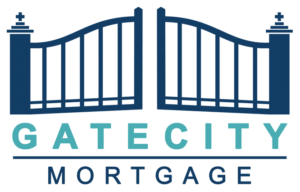For conventional mortgages, if your down payment is less than 20% of the home’s purchase price, lenders usually require Private Mortgage Insurance (PMI). This insurance protects the lender in case you default on your mortgage.
What is Private Mortgage Insurance (PMI)?
Private Mortgage Insurance (PMI) is often required by lenders on conventional mortgages when the down payment is less than 20% of the home’s purchase price. This insurance protects the lender if you default on the loan. Sometimes, you might need to pay up to one year’s worth of PMI premiums at closing, which can amount to several hundred dollars. To avoid this additional expense, consider making a 20% down payment or exploring other loan program options.
How does Private Mortgage Insurance (PMI) Work?
PMI companies provide insurance policies that protect approximately the top 20% of the mortgage against default. The specifics depend on the lender’s and investor’s requirements, the loan-to-value ratio, and the loan program type. If you default on your mortgage, the lender will sell the property to cover the debt and the PMI company reimburses the lender for any remaining amount up to the policy value.
Does Obtaining Private Mortgage Insurance (PMI) Help Me Qualify for a Larger Loan?
Yes, obtaining PMI can help you qualify for a larger loan. Here’s an example:
Suppose you have an annual gross income of $50,000, monthly revolving debts of $600 for car payments and credit cards, and $12,000 for your down payment and closing costs on a 6% interest mortgage. Without PMI, the maximum home price you can afford is $55,000. However, with PMI covering the lender’s risk, you can now afford a $75,000 house. In this case, PMI enables you to buy a home that is 36% more expensive.
Is Private Mortgage Insurance (PMI) Expensive?
PMI costs vary depending on the insurer and the specific plan. For example, a highly leveraged adjustable-rate mortgage might require a higher premium. Let’s consider a scenario with a $180,000 purchase price:
Buyers with a 5% down payment might pay a premium of about 0.80% of the annual loan amount, which translates to $120 monthly. However, with a 10% down payment, the PMI premium could drop to 0.55%, resulting in a monthly payment of $82.50. These examples show how the size of your down payment can significantly impact PMI costs.
How Can Private Mortgage Insurance (PMI) Fees Be Paid?
PMI fees can be paid in several ways, depending on the insurer:
- Annual Premium Paid Monthly: Borrowers can pay the first year’s premium at closing, with an annual renewal premium collected monthly as part of the house payment.
- Higher Monthly Premium: Borrowers can opt to pay no premium at closing but instead add a slightly higher premium to their monthly principal, interest, tax, and insurance payment.
- Financed Lump-Sum Premium: Borrowers who prefer to avoid paying PMI at closing and don’t want to increase their monthly payment can finance a lump-sum PMI premium into their loan. If the PMI is canceled before the loan term expires through refinancing, paying off the loan, or removal by the loan provider, the borrower may receive a rebate of the premium.
How Does one apply for PMI?
Typically, the buyer covers the cost of PMI, but the lender is the PMI company’s client and shops for insurance on behalf of the borrower. Lenders usually work with only a few PMI companies because they are familiar with their guidelines. This can be problematic if one of the lender’s preferred companies rejects the loan because the borrower doesn’t fit its risk parameters. In such cases, the lender might deny the loan application without consulting another PMI company, potentially leaving all parties in an undesirable position. The lender must balance fairness to the borrower with finding the most effective way to mitigate liability.
What is the History of Private Mortgage Insurance (PMI)?
The Private Mortgage Insurance (PMI) industry began in the 1950s with the first major carrier, Mortgage Guaranty Insurance Corporation (MGIC). They were often referred to as “magic” because these early PMI methods seemed to “magically” help secure lender approval for otherwise unacceptable loan packages. Today, there are eight PMI underwriting companies in the United States.
How is Private Mortgage Insurance (PMI) Cancelled?
The Homeowners Protection Act of 1998 established rules for automatic termination and borrower cancellation of Private Mortgage Insurance (PMI) for certain home mortgages. These rules apply to home mortgages signed on or after July 29, 1999, for home purchase, initial construction, or refinance of a single-family home. They do not apply to government-insured FHA or VA loans, or to loans with lender-paid PMI.
Automatic Termination
For home mortgages signed on or after July 29, 1999, your PMI must be automatically terminated when you reach 22% equity in your home, based on the original property value, provided your mortgage payments are current.
Borrower Cancellation
You can request to cancel PMI when you reach 20% equity, again based on the original property value, if your mortgage payments are current.
Exceptions
- High-Risk Loans: If your loan is considered high risk, PMI may not be canceled.
- Payment History: If you have not been current on your payments within the year before termination or cancellation, PMI may not be canceled.
- Other Liens: If there are other liens on your property, PMI may not be canceled.
Additional Information
Ask your lender or mortgage servicer for information about these requirements. If you signed your mortgage before July 29, 1999, you can request PMI cancellation once you exceed 20% home equity, but federal law does not require your lender or mortgage servicer to cancel the insurance.
List of Private Mortgage Insurance (PMI) Companies
Here are some of the major private mortgage insurance (PMI) companies in the United States, listed alphabetically along with their contact information:
- Amerin Guaranty Corporation
- Address: 303 East Wacker Drive, Suite 900, Chicago, IL 60601
- Phone: (800) 257-7643
- Fax: (312) 540-0564
- Arch Mortgage Insurance Company (Arch MI)
- Address: 230 North Elm Street, Greensboro, NC 27401
- Phone: (877) 642-4642
- Website: mi.archcapgroup.com
- Commonwealth Mortgage Assurance Company
- Address: 1601 Market Street, Philadelphia, PA 19103-2197
- Phone: (800) 523-1988
- Fax: (215) 496-0346
- Essent Guaranty, Inc.
- Address: Two Radnor Corporate Center, 100 Matsonford Road, Radnor, PA 19087
- Phone: (855) 282-1483
- Website: www.essent.us
- G.E. Capital Mortgage Insurance Corporation
- Address: P.O. Box 177800, Raleigh, NC 27615
- Phone: (800) 334-9270
- Fax: (919) 846-4260
- Genworth Mortgage Insurance
- Address: 8325 Six Forks Road, Raleigh, NC 27615
- Phone: (800) 334-9270
- Website: www.genworth.com
- MGIC (Mortgage Guaranty Insurance Corporation)
- Address: 250 E Kilbourn Avenue, Milwaukee, WI 53202
- Phone: (800) 424-6442
- Website: www.mgic.com
- National Mortgage Insurance Corporation (National MI)
- Address: 2100 Powell Street, Emeryville, CA 94608
- Phone: (855) 317-4640
- Website: www.nationalmi.com
- PMI Mortgage Insurance Company
- Address: 601 Montgomery Street, San Francisco, CA 94111
- Phone: (800) 288-1970
- Fax: (415) 291-6175
- Radian Guaranty, Inc.
- Address: 1500 Market Street, Philadelphia, PA 19102
- Phone: (877) 723-4261
- Website: www.radian.biz
- Republic Mortgage Insurance Co.
- Address: P.O. Box 2514, Winston-Salem, NC 27102-9954
- Phone: (800) 999-7642
- Fax: (919) 661-0049
- Triad Guaranty Insurance Corp.
- Address: P.O. Box 25623, Winston-Salem, NC 27114
- Phone: (800) 451-4872
- Fax: (919) 723-0343
- United Guaranty Corporation
- Address: P.O. Box 21567, Greensboro, NC 27420
- Phone: (800) 334-8966
- Fax: (919) 230-1946
The Fair Credit Reporting Act (FCRA)
The Fair Credit Reporting Act (FCRA) is designed to ensure that consumer reporting agencies (CRAs) provide accurate and complete information to businesses when they evaluate your application. Here are your key rights under the FCRA:
- Right to Your Credit Report
- You have the right to receive a copy of your credit report. This report must contain all the information in your file at the time of your request.
- Right to Know Who Accessed Your Report
- You have the right to know the names of anyone who received your credit report in the past year for most purposes, or in the past two years for employment purposes.
- Right to Information on Denied Applications
- If a company denies your application based on information from a CRA, they must provide the name and address of the CRA that supplied the information.
- Right to a Free Report After Denial
- If your application is denied due to information from a CRA, you are entitled to a free copy of your credit report. You must request this within 60 days of receiving the denial notice.
- Right to Dispute Inaccuracies
- If you believe your credit report contains incomplete or inaccurate information, you can file a dispute with both the CRA and the company that provided the information. Both parties are legally required to reinvestigate your dispute.
- Right to Add a Summary Explanation
- If your dispute is not resolved to your satisfaction, you have the right to add a summary explanation to your credit report. This allows you to explain your side of the story directly on your credit report.
The FCRA provides these protections to help ensure the fairness and accuracy of credit reporting. By understanding and exercising these rights, you can help protect your credit reputation and ensure that your credit applications are evaluated based on accurate data.
The Fair Credit Reporting Act (FCRA) was implemented on October 26, 1970. This federal law was enacted to promote accuracy, fairness, and privacy of information in the files of consumer reporting agencies. The FCRA is part of the Consumer Credit Protection Act and is enforced by the Federal Trade Commission (FTC), the Consumer Financial Protection Bureau (CFPB), and private litigants.
For more detailed information, you can refer to the official text of the FCRA and other resources provided by the Federal Trade Commission (FTC) and the Consumer Financial Protection Bureau (CFPB):

